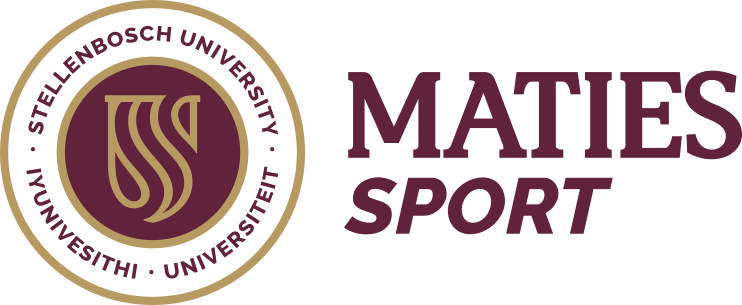Rugby isn’t a job or even a career for Maties Rugby Head Coach, Kabamba Floors – it is a calling.
Floors was introduced to the sport at the age of nine on a dusty field while enrolled at an Ostrich farm school in Oudtshoorn. It was baptism by fire and an early lesson in toughening up “and doing what you gotta do” because with so few players, Grade 1s were pitted against Grade 7s!
This changed at Morester High School where he went on to captain the first team. As his school was not rated as a “rugby school” he never did get the chance to play in any Craven Weeks but after matriculating, he was immediately selected for South Western Districts U19 and played 38 games over two seasons before being snapped up by the Cheetahs in Free State.
“I discovered the challenges of not being part of the rugby or cultural elite early in life,” says Floors. “I could have grown bitter, or I could grow positive, work hard and hold steadfast to achieve my own goals. I chose the latter, and continue to do that in all aspects of my life.
“I played professional rugby for 13 years, I got my Springbok cap, I steadily mastered coaching – and now I sit with pride in Doc Craven’s office!”
After 11 years with the Cheetahs and a further season with SWD, Floors retired from professional play at the age of 34, returning to Cape Town where he settled in Table View and embarked on a full year of physical rehabilitation.
It was at this time that his former Cheetahs coach and then Maties Head Coach, Hawies Fourie, invited Floors to join him at Stellenbosch as assistant coach for the juniors. And so, in 2016 he became part of the Maroon Machine. First as assistant coach to the Young Guns and then Head Junior Coach. In 2022, he became Assistant Seniors Coach, and this year he was promoted to Head Coach. “I’ve come all the way,” says Floors, “from the bottom to the top – and this can only be a good thing because I come into this position with an understanding and experience of how Maties Rugby functions both on and off the field.”
Contrary to what many might think, the job extends far beyond putting players through training and making selections for games. “My responsibilities include recruitment and retention of players; overseeing their wellbeing as student athletes academically, physically and mentally; developing and rolling out a team strategy over years to ensure succession and high performance; and advancing the University’s objectives with regards to transformation and student experience.”
Recruitment, he explains, is so much more complex that hanging out at school rugby matches and picking the best players. “There are criteria for everything: academic performance, BWCI benchmarks, including players from schools that aren’t top tier, and even more hurdles in offering bursaries… It requires all role player input and, often, some tough and unpopular decisions.”
Floors believes that recruitment to university teams – the gateway to a national and international stage – would be easier if more was invested in schools, and if communities were uplifted to make cultural adaptation easier. “We need improved teaching at all schools so that players are able to qualify for a degree and not just for acceptance at universities. Retention is vital not only to the development of a team over three to four years, but also to the financial model of the institution. Until there is equity in school education, we will struggle to level the recruitment playing fields,” says Floors.
Despite the challenges, Floors loves his job. “As a professional player you learn quickly to set your ego aside for the team. That’s what I apply to my work here. I am proud of Maties’ transformation. For some that’s still a threatening word … but really it is just evolving the history and legacy of this outstanding club. My objective is to celebrate the past while shifting it into the now.”
